EM Guide: And yet it moves. An in-depth overview of North Macedonia’s new music scene through the work of the Gola Planina Collective
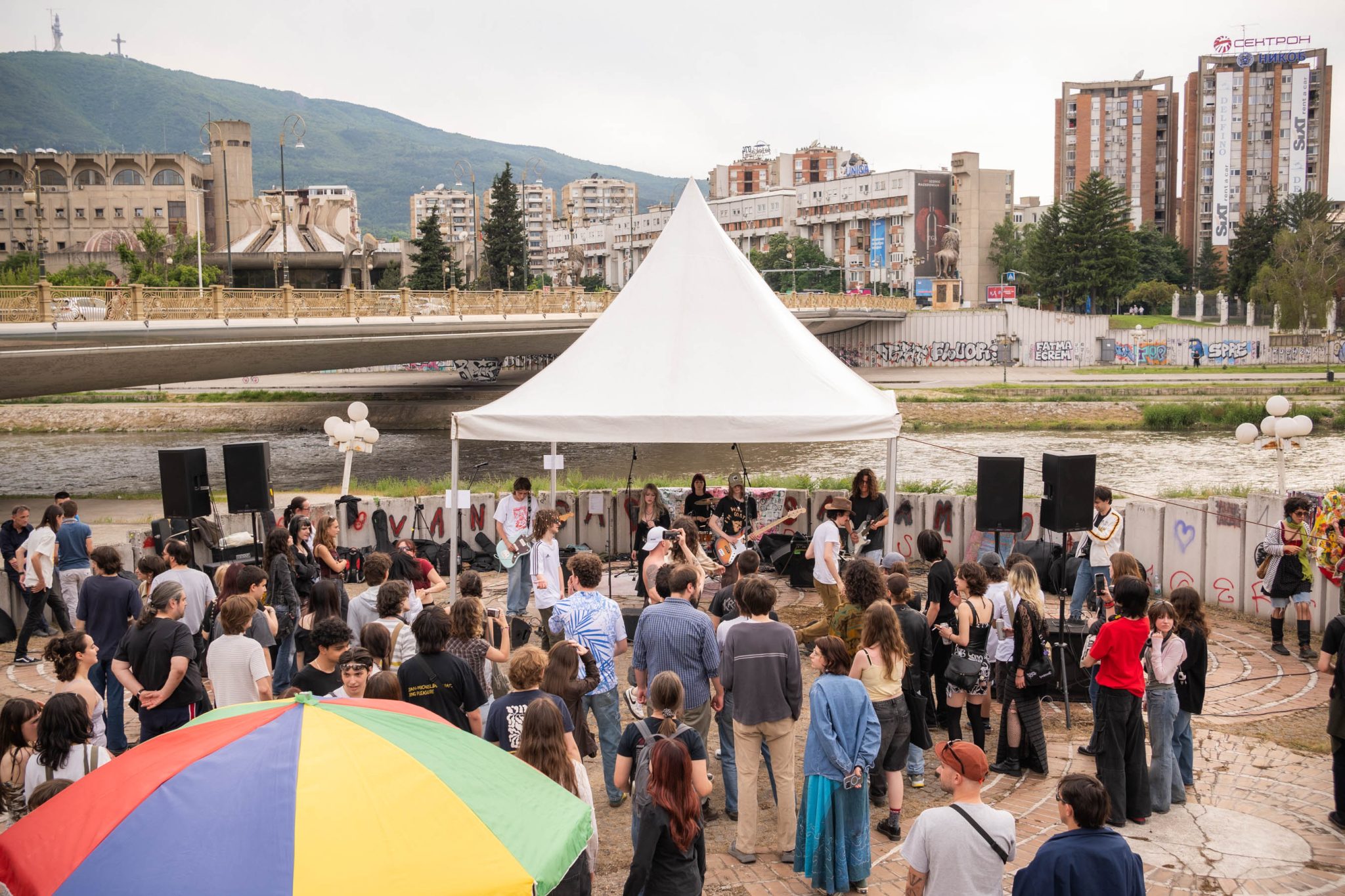
This article focuses on the work of ‘Gola Planina’, a band collective whose work and general activity has been a key actor in shaping the post-pandemic music landscape in Macedonia, as well as on their most recent endeavor: a festival caravan titled „Сепак се Врти“, the Macedonian translation of Galileo Galilei’s words that signify a resilience of knowledge and action: ‘And yet it moves’.
To start off with semantics and ‘what’s in a name’: ‘Gola Planina’ in Macedonian means ‘Naked Mountain’ or ‘Bare Mountain’/’Barren Mountain’, a name truly and unfortunately befitting the current cultural ambience in almost all cities in Macedonia, Skopje, the capital, included. Still recovering from the lockdown period, the cultural scene in Macedonia has been left in a limbo state ever since, reduced to a series of attempts at a cultural event, preceded by a very stressful battle for funds and audience. However, amidst what has definitely been the strangest time to be a musician, some very hopeful initiatives have started to sprout out of the barrenness: and one such is ‘Gola Planina’; what started out as an organically-formed group of bands sharing band members and feeling the need for a collective platform back in 2021 has since become a label, a movement and the closest thing to a music export the country has had.
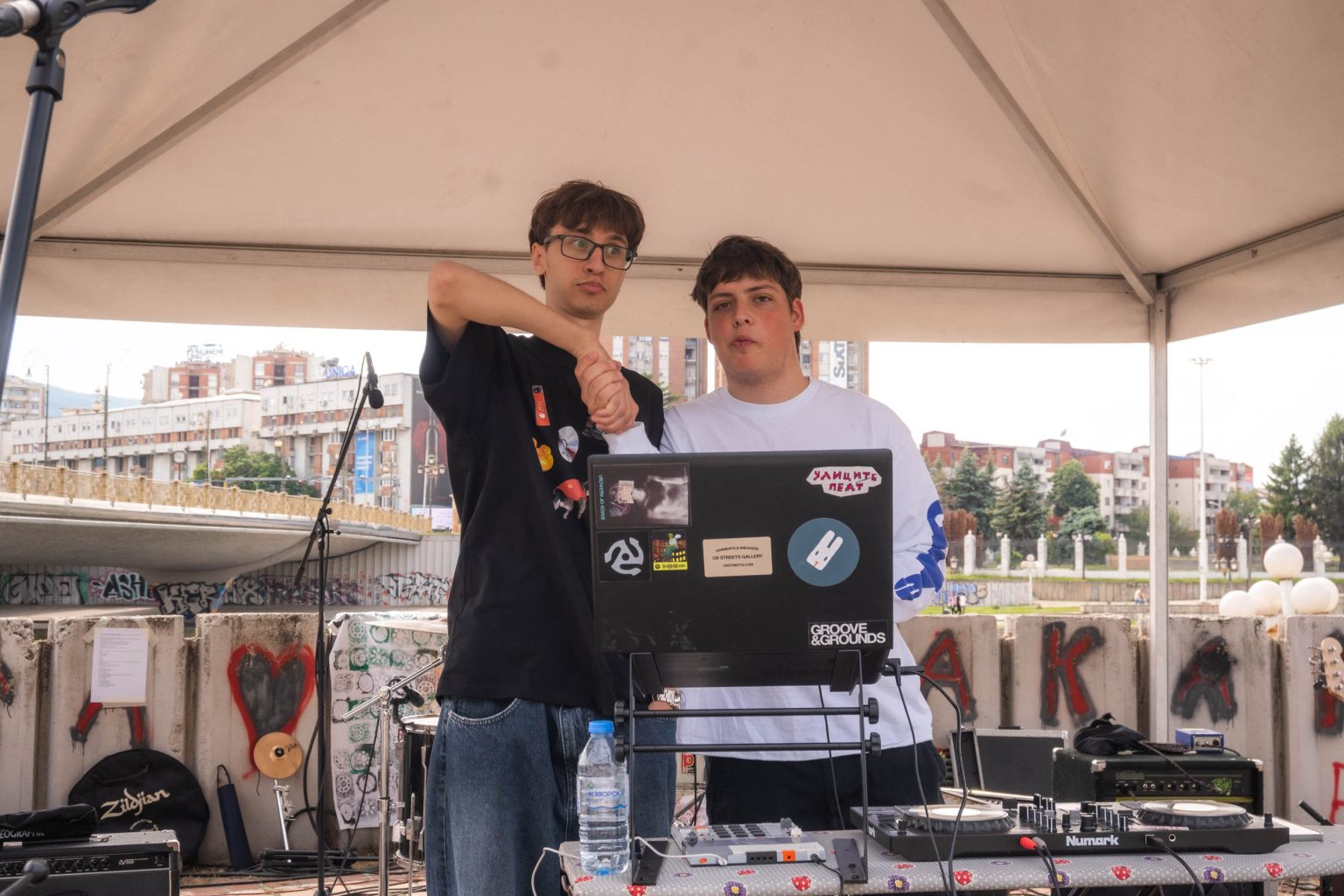
These young musicians and music enthusiasts, who felt they needed to take action in their own hands in terms of event organization, promotion, production, and publishing, have taken the best of what COVID gave us: a return to that long-forgotten fun activity called studying, and have used this loneliness to try and create a solidarity-based alternative scene.
One of the first moves that “officialized” Gola Planina, aside from the organization of a few local events since its formation, was the publishing of the compilation “Македонски нов бран, селекција за 2022” (Macedonian new wave, 2022 selection), released digitally and on CD at the beginning of 2023. Afterwards, a series of other releases followed, and from this emerged the actual record label named Mrtov Konj (Macedonian for Dead Horse), launched in 2024, with the release of Lufthansa’s third studio album.
Up to date, this label has a catalog of around 40 releases in its not-so-long existence, most of which are by these younger bands that are a part of the collective, but also acts outside of Gola Planina, some of them even coming from other countries, such as Klot Ljudi from Serbia and Klaustro/fonija from Croatia.
Aside from the music publishing role, another very important aspect of Gola Planina’s work is tour management and event planning, not only for the local scene bands, but also for bringing foreign acts to Macedonia. For the past few years, many events have happened on a weekly or even daily basis – from one-time gigs in local bars and cafés, to bigger festivals, sometimes lasting for more days in a row.
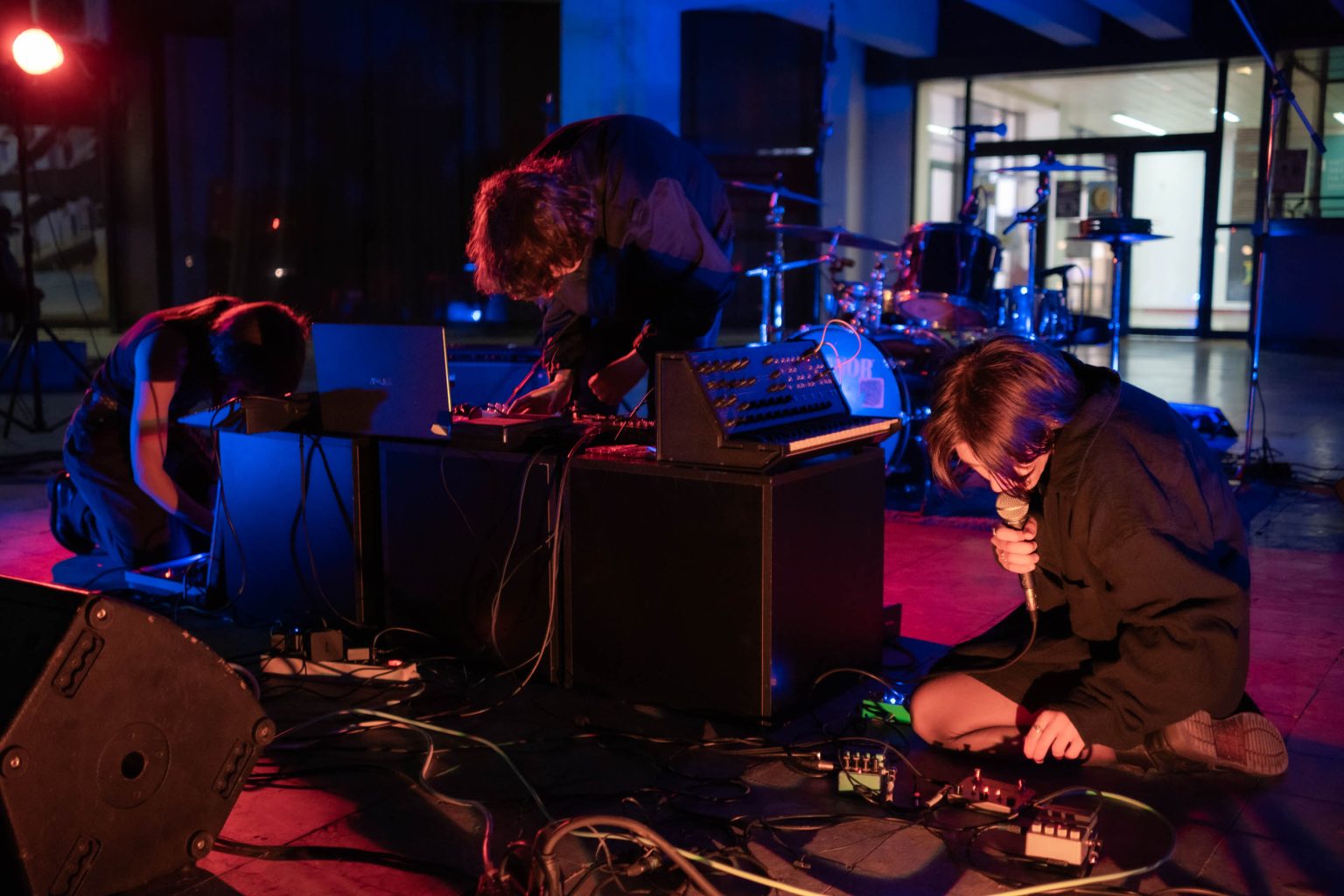
While already established festivals in Macedonia have lost all of their appeal, and struggle to stay afloat as a result of questionable decisions and a lack of competent teams running them, they turn to ‘Gola Planina’ to save the day with a stage and programming – a clumsy cry for help by an older generation that as per usual lets young people enter the process, but up to a limit. However, the youngsters take the challenge, and they learn and they gain experience, and they bring their audience, and the power shifts.
This is where ‘And yet it moves’ comes in, a festival entirely made by the collective and the label adjacent, that has had a very rapid growth over its two editions: what started as a completely grassroots open-air, day-long event in the park, turned into a six-day festival caravan in six different cities in the country. The first edition of Сепак се врти, which took place last year, began at noon and lasted until after midnight, featuring 12 different acts on a summer stage in the park. Needless to say, it didn’t pass without an institutional scr*w-up. Even though it had been agreed upon earlier, people from the national electricity distribution company never showed up on the scheduled date to turn on the outdoor stage electricity, so the organizers had to find (and rent) a generator in the last minute before the festival started. Despite this, though, the festival was a blast. This new scene and these young people operate fascinatingly; their endeavors contain a beautiful paradox – at the same time, they are trying to be as professional as possible, keeping in mind safety, environmental issues and artists’ rights all the while trying to avoid institutionalizing and formalizing things and maintaining a down-to earth, hands-on, DIY mentality. Taking a page out of Sinestetika’s playbook, the festival ended with a cleaning action, leaving the grass spotless and ready for the next morning as if there hadn’t been thousands of people partying the day before.
The second edition, though, did manage to receive some funding from the Ministry of Culture, so the wishes of the ‘Gola Planina’ core team, to bring the festival and new music to as many different smaller towns as possible, became feasible, at least without the stress of potentially having to have the performers play for free. I must emphasize the importance of this because it highlights a crucial aspect of the collective’s goals: not only to contribute to Skopje’s cultural scene, but also to breathe life into the cultural happenings in smaller towns, which is of vital importance to the youth living there. Without care for these young people, these towns, already facing depopulation, especially by that very demographic, risk losing all cultural identity and engagement. Decentralization of cultural life is essential in a situation where even the capital struggles to prevent its youth from falling into a state of depression and hopelessness.
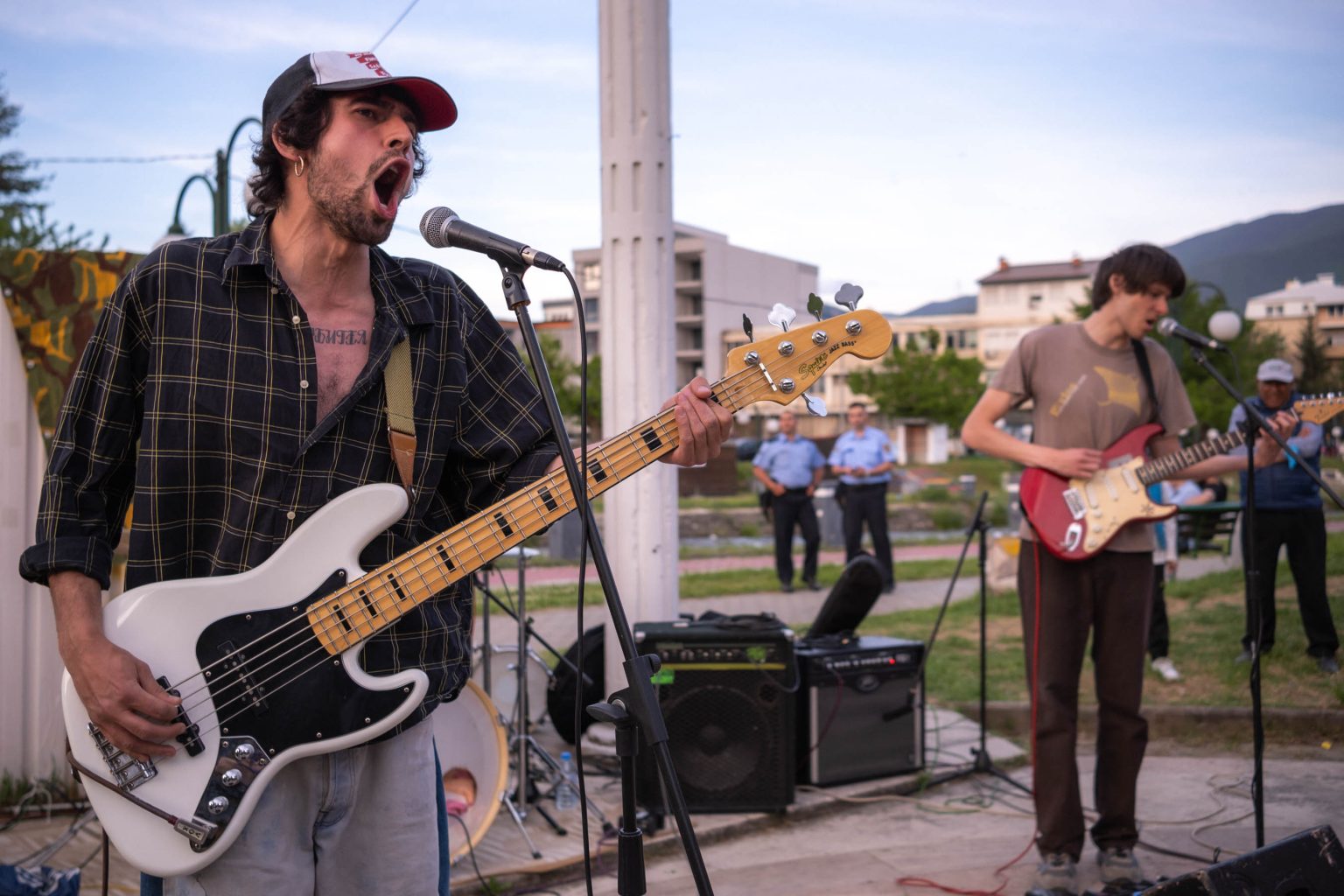
In order to do this, each festival date had a local organization in each town as a partner, a move not only made to ensure easier organization, but to promote cooperation and collaboration, the most important aspects of work in the cultural sector today. That way, Ponder was the collaborator for Bitola, Goongula for Prilep, Boilling Point for Kumanovo, Excess Festival for Strumica, and Gola Planina’s Dona Ilijevska from and for Gostivar.
After careful planning and playing (and winning) a game of “band sudoku” to arrange the bands across the six festival days and locations in groups of four, the caravan started on the 2nd of May, with the first festival day happening in Bitola, one of the slightly more active cities that still has its own events, festivals such as Metal Discharge, and active organizations like Ponder and Kontra Kadar that regularly organize events and tenaciously try to improve the cultural life in the city. This festival date was held outdoors, in the old Bazaar and main pedestrian zone in Bitola, and it had a program that united the stoner rockers Mrsha, post rock/free jazz trio Strog Post, punk rockers Xajka, and it ended with the very young electronic/drum’n’bass/glitch artist Pond Skull.
The next festival day had the caravan moving to Prilep, a city where, recently, inspired by the work of Gola Planina, Ponder, and Otrov, new local DIY organizations named Menza and Goongula had emerged. The band that opened on this second date was the brand-new Alternative Blues Rock act Kaliko. They just released their first single, and gave us something very refreshing – beautiful lyrics and vocals, coupled with some of the most creative guitar-work that has happened lately. Next up were Kokiche, a jazz-rock quartet, followed by Golemata Voda, who are one of the youngest – they appeared last year, and are also working on their first release. The day ended with Lufthansa, and a birthday cake for three of the six members of this post-punk/psychedelic rock group that is the leading musical project of ‘Gola Planina’ and a leader in the alternative music scene in the country in general.
The third festival day happened on Sunday in the small city of Gostivar. In order to make it easier for audiences from all over the country to be able to come and also have transportation options for back home after the gigs are finished, this event started earlier in the day. It happened outdoors, at the City Amphitheater, and had many local passersby confused, hearing and seeing alternative culture in their hometown for the first time in a while. Among the bands who played here were alt. post punks Xarakiri – a power trio fronted by singer and bassist Marko Pechenovikj, who is one of the main driving forces behind Gola Planina and Mrtov Konj.
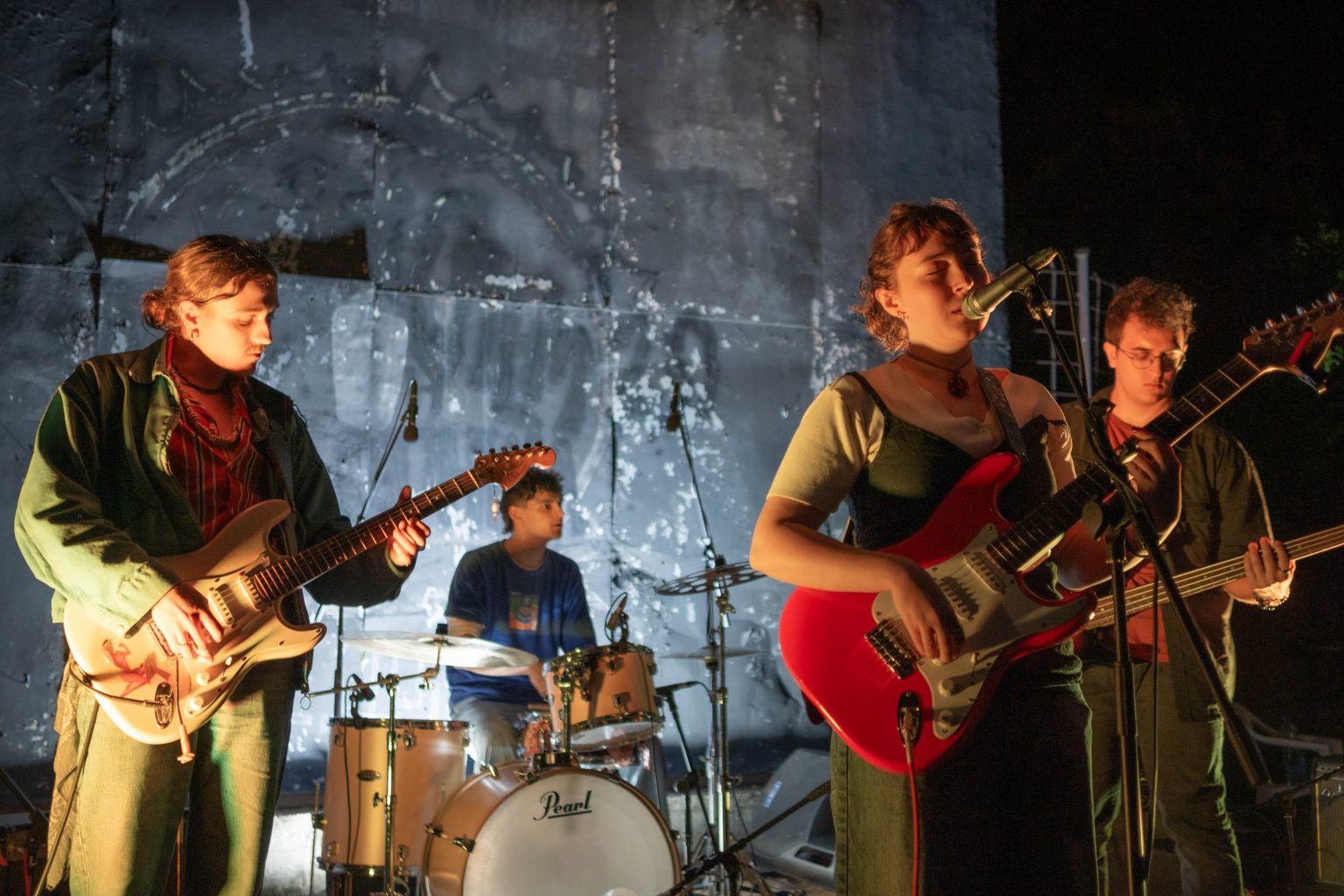
Another act with a slot in Gostivar was Joana – a full-on solo project of the guitarist Joana Risteska, who creates various ambient and shoegaze textures and rhythms using live looping, as well as Ata, a trip-hop/coldwave solo project that evolved into a full band, and during whose eclectic set the audience made a semi-circle and started the traditional “oro” dance.
The next weekend started with some heavier-sounding guys who played their slot in Strumica.
Due to the fact that the Gostivar gigs finished with the electricity shutting down, the last act, Karma Scale, didn’t quite finish their set. Being probably the newest band of all, and this gig one of their first ever, they were rescheduled for Strumica, along with their metalhead colleagues Lost in Reverie, thrashers Conspiracy, the HC “veterans” Peach Vice, and the pop-punkish solo project Dimish. This date stood out due to its stylistic difference, since there are not many metal and hardcore acts that are a part of Gola Planina/Mrtov Konj.
So as to mix audiences, the next day happened in what used to be the most “metal” city in the country – Kumanovo, but it had the most non-metal line up: IVL, an Insdustrial/Noise trio of people from various musical backgrounds, working live with synths, effects, and tape manipulation in a very creative way, followed by Alembic, my very own band.
I have to make a personal note here, straying for a moment and just address the fact that I cannot be fully impartial to this initiative, seeing as I remember the moment when we were asked as Alembic if it was ok with us for the festival to be named after our song Dynamo’s refrain, and the sense of gratitude I feel having it carry the name, dubbing me a kind of godfather to this great thing, as well as part of the team. But this is most certainly not meant to be a commercial, but rather a storytelling of a unique feat that these young people managed on their own.
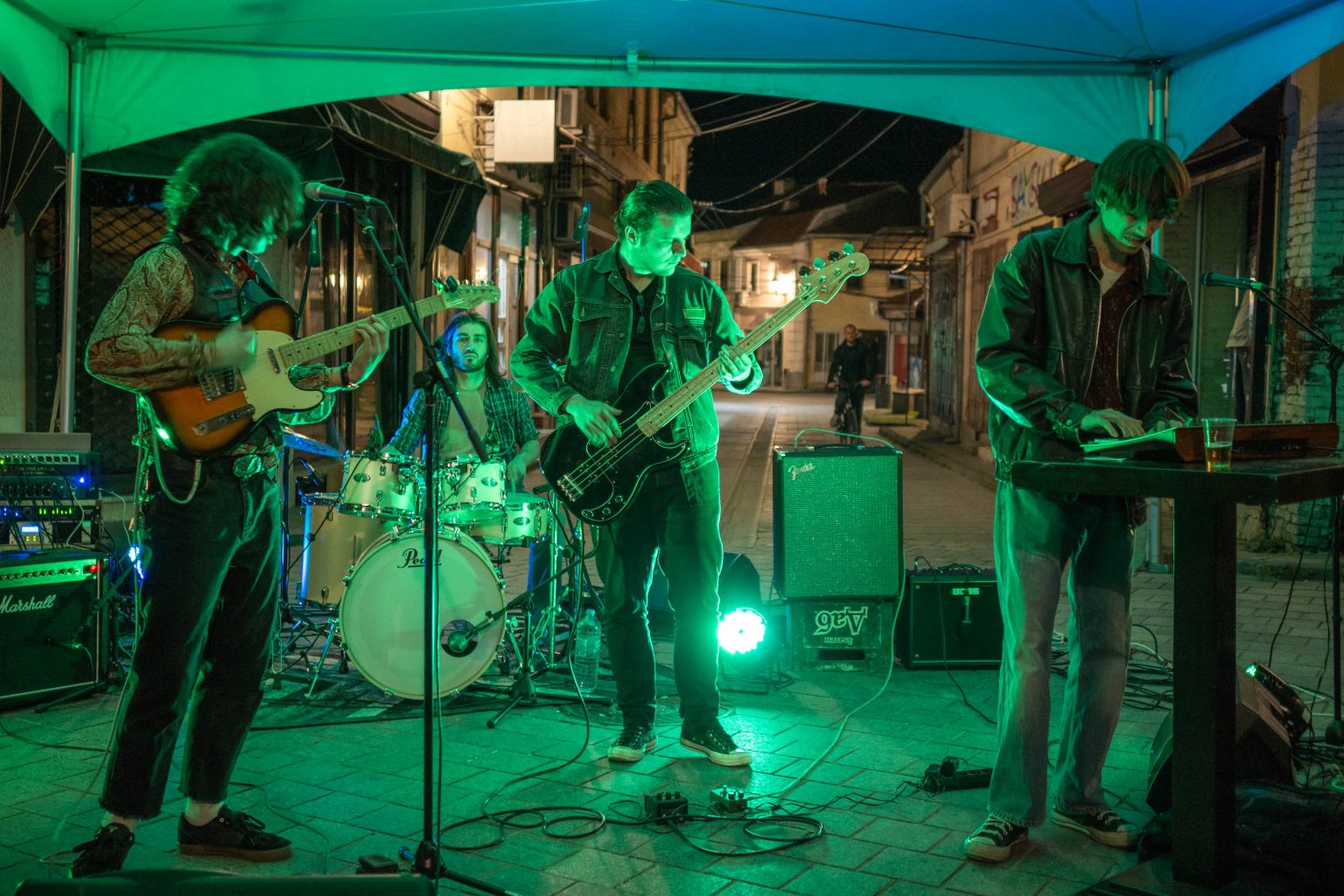
Back to the fifth festival day, next up were KEM, an MC-fronted hip-hop line-up with guitar-bass-drums backing. The last act here was Vagina Corporation, one of the many bands that evolved from a Lufthansa member starting a solo side project. This one also happened in front of the local cultural center, a leftover from the Yugoslav period. Each smaller town in Macedonia has a local cultural center. These are concert halls and are usually very well thought out; they feature a hall for performances, fit for theatre as well, galleries, etc. They have been a point of gathering through cultural events back in the day. Nowadays, these centers are rotting away, with a maximum of 10 events happening per year, with some very resigned employees who, it seems, are trying to keep the status quo. Even when they get renovated and fully equipped, which mayors do from time to time, the main problem remains, there are “supposedly” not enough skilled people to work there and these places that could present many jobs for people in the sector, remain empty and lifeless shells of what their possibilities offer and with very dubious employment choices. This event also featured a mixed audience – some eager to be included Roma kids, some local skateboarders guessing synth models during soundchecks, and even a pony horse.
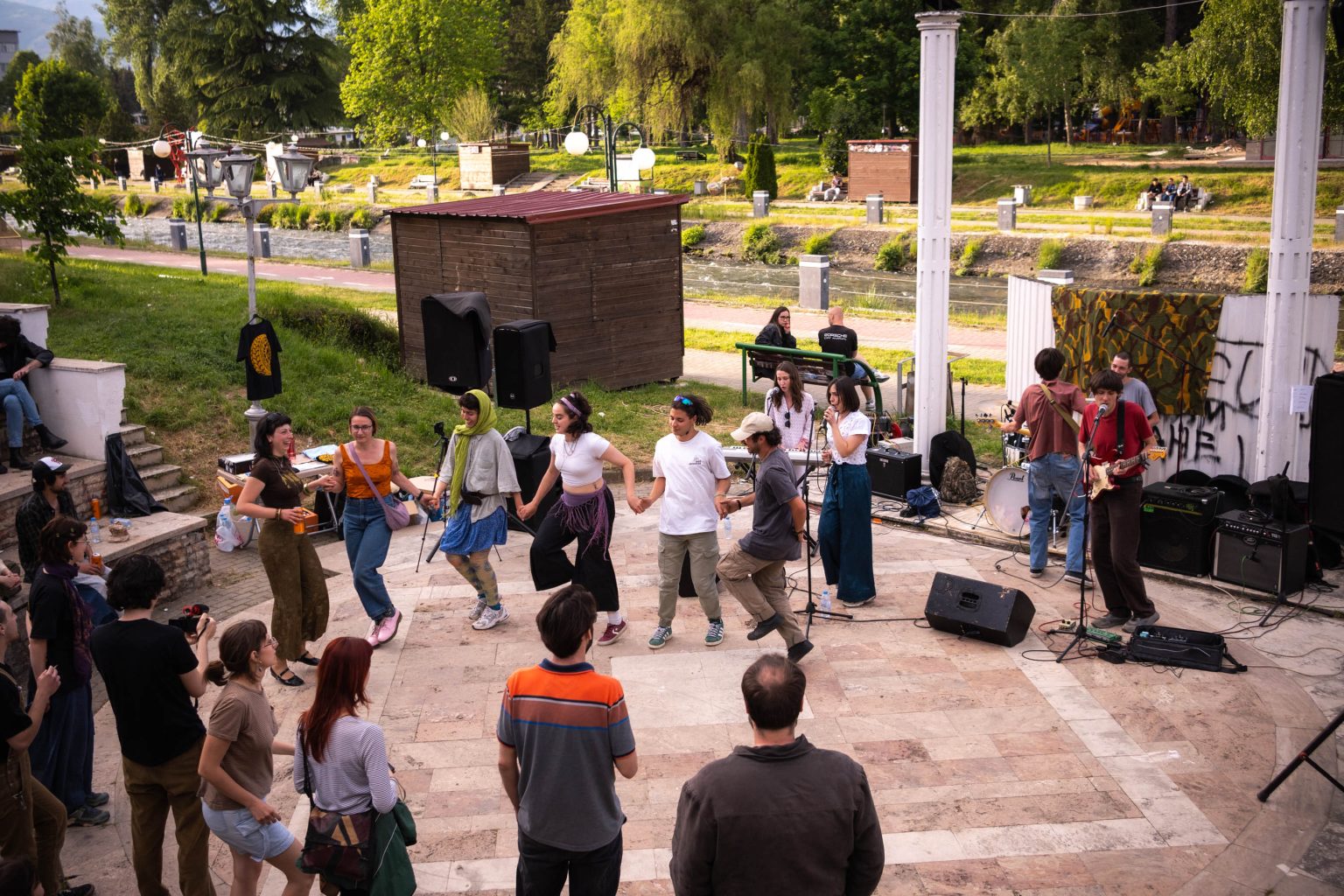
On the last day, we all went back to Skopje, the capital, for an all-day-long program at the Vardar riverbank, which started with a DJ duo warmup by M.I.K. and Damage Control, followed by Endemski Vid – one of the few bands who are not based in Skopje, but rather in Kavadarci. Next up were older punks Marinaleda, but the performers that I would like to point out the most were Korka, a Stoner Rock/Grunge/Noise band that just released its first EP. They are of the newest and youngest, and are coming from Kochani. The festival was initially supposed to have a date in Kochani as well, a most unique repertoire taking place at an amphitheater. However, it was decided against it. As I am writing this, the country is still recovering from one of the most distressing failures of our state, and definitely the most horrifying crisis of our profession. Over sixty people lost their lives (most of which young people) and more than 120 were injured in a fire in a nightclub in the town, and it has affected hundreds of families. It has affected all of us.
Back in Skopje, the next band to perform the planned outdoor slot on the last day of Sepak se vrti was the progressive jazz quartet Taxi Consilium. During their performance, however, and to be more specific, as they were performing their new song “It was no longer possible to predict the weather”, a heavy storm started all of a sudden, so a plan B had to be devised in record time. Luckily, the bar Dze opened the doors for the festival program to continue over there with the last act – the guitar/bass/keys, two drum set driven improv/kraut rock trio (tochka) Com. This was the final test of the intense two weeks. Friends and the entire team went into action mode and helped out with the festival rescue while the audience sought shelter under the bridge, cheering on from below and waiting for instructions.
This final test was not only technical and physical, but psychological as well. With only one act to go, there was frustration, an anger for the lack of celestial cooperation, and a disappointment that the grand finale would not benefit from the amazing and unique foreseen location and would maybe not be so, well…grand. But grand it was. And more so because it rested on friendship, even when it requires hearing some hard truths, rolling up sleeves, and just pushing on, but together. There was a sense of catharsis as the festival ended, a relief and a slightly amazed “we did that”. The festival generally didn’t receive a lot of media coverage despite its scope, but it never bothered the crew too much. They have it all on camera, and there is even talk of a self-produced documentary.
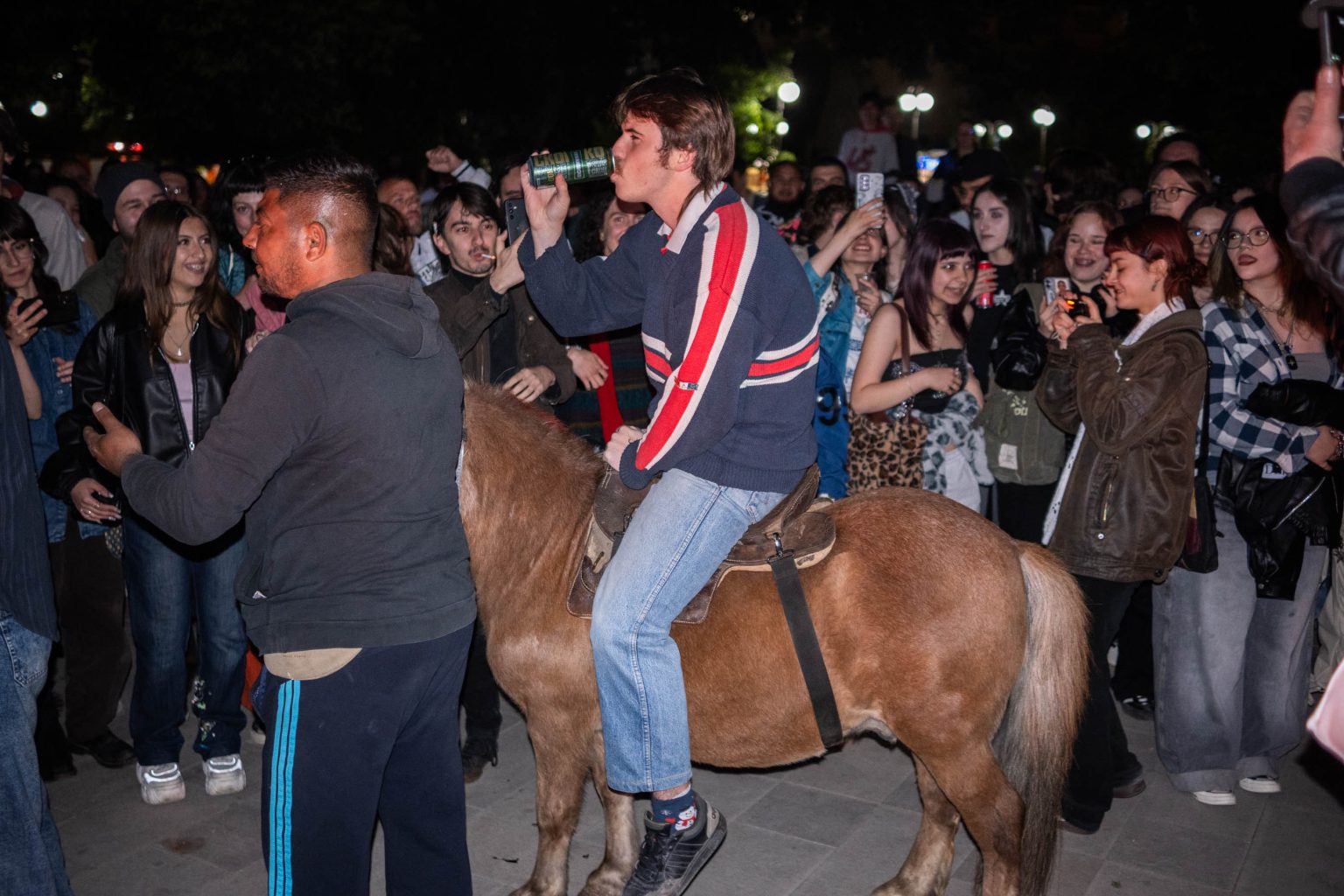
It is interesting how this history-in-the-making has to be self-documented. But no matter how ignored by the institutions and press, and how criticized for being alienated and technology-dependent, it is ironic, and a slap in the face, how much sense of togetherness this new generation has. Most of these young people never went to the prom. Some of them never met their classmates at all. And, sadly, they are still battling isolation. But at least they have the immunological capacities to tackle it, and it shows. They push relentlessly towards solidarity and a coming together, albeit it being clumsy at times. It is a call to arms, nowadays symbolically against a literal call to arms, a call to arms leading to a farewell to arms, a call to arms embracing. What happened in Kochani recently has made two things inescapable: it is people who are creating the cultural sector, and what they need to be is knowledgeable and caring. And we all have a responsibility to make sure that people who are neither are not allowed to be calling the shots. But I sure hope this group of enthusiastic young people will pass the test of time, and will continue growing, evolving, and doing the right things for the right reasons, thus closing the gate for various unfit dilettantes to take over, whether as artists or as curators, organizers, program selectors or publishers, destroying or slowing down growth from within, or even putting musicians and audiences in danger.
Young people know this innately, and I sure hope they never grow up.
Appendix Playlist, by order of appearance:
Strog Post (Post rock/Doom/Free jazz)
https://www.youtube.com/watch?v=OKo8Liswk3A&ab_channel=AKSIOMA
Pondskull (Electronic/Power noise)
https://pondskull.bandcamp.com/album/destined-obscurity-fractal-perception-recitations
Kaliko (Alternative/Blues Rock)
https://www.youtube.com/watch?v=I-WELoOKkw0&ab_channel=%D0%9A%D0%B0%D0%BB%D0%B8%D0%BA%D0%BE-Topic
Lufthansa (Post-punk/Psychedelic rock).
https://www.youtube.com/watch?v=xrKykYgCN7k&ab_channel=Lufthansa
Xarakiri (Post-punk/Alternative Rock)
https://www.youtube.com/watch?feature=shared&fbclid=PAZXh0bgNhZW0CMTEAAadTUoEPH61ZlSnIR8Hy-luwWll0ReJfX0ronG1ay6kJpjkkrdAE7Y_tWatjnw_aem_br8eagoYjh9OaoipQWfP3Q&v=77MlsR-yNI8
Ata (Cold wave/Trip-hop) https://www.youtube.com/watch?v=CSM7WnSPhkc&ab_channel=ATA
Peach Vice (Hard-core/Metal)
https://www.youtube.com/watch?v=ga1mTe9sB-U&ab_channel=PEACHVICE
Conspiracy (Thrash metal) https://www.youtube.com/watch?v=yxunQAvjlVM&ab_channel=CONSPIRACYOFFICIAL
Dimish (Punk rock/Pop punk)
https://www.youtube.com/watch?v=-v9oVypm4lo&ab_channel=Dimish
Lost in Reverie (Emo metal)
https://www.youtube.com/watch?v=4AQFebwiVSo&list=PLIIO5YEfl6X8DLF1IpWTmMdJSXTsauUB_&ab_channel=LostInReverie
Karma Scale (Metalcore)
https://www.youtube.com/watch?v=JETH5G2Fn8g&ab_channel=KarmaScale
Vagina Corporation (Post punk)
https://www.youtube.com/watch?v=U-Do6s9yi9Q&ab_channel=VagCorporation
KEM (Hip-hop/Rap/Funk)
https://www.youtube.com/watch?v=p2l57gb-XlE&ab_channel=KEM
Alembic (Post-rock/Ambient/Shoegaze/Prog)
https://www.youtube.com/watch?v=qZfN3bg-A5M&ab_channel=%D0%90%D0%BB%D0%B5%D0%BC%D0%B1%D0%B8%D0%BA
Endemski Vid (Alternative Rock)
https://www.youtube.com/watch?v=Wrv0hyFitfY&ab_channel=%D0%95%D0%BD%D0%B4%D0%B5%D0%BC%D1%81%D0%BA%D0%B8%D0%92%D0%B8%D0%B4
D.I.K (Electro/Hip-hop/Drum’n’bass)
https://damagecontr0l.bandcamp.com/album/-
Korka (Stoner Rock/Grunge/Noise)
https://www.youtube.com/playlist?list=PLVzIkrrawU8ZYqLGHZjQFP-bk0aRBtDBG
Taxi Consilium (Progressive Jazz/Free improv)
https://www.youtube.com/watch?v=B9igiyn_zAo&ab_channel=PMGJazz
Text by Viktor Tanaskovski
Photos by Sara Bogoeva

This article is brought to by easterndaze you as part of the EM GUIDE project – an initiative dedicated to empowering independent music magazines and strengthen the underground music scene in Europe. Read more about the project at emgui.de.
Funded by the European Union. Views and opinions expressed are however those of the author(s) only and do not necessarily reflect those of the European Union or the European Education and Culture Executive Agency (EACEA). Neither the European Union nor EACEA can be held responsible for them.